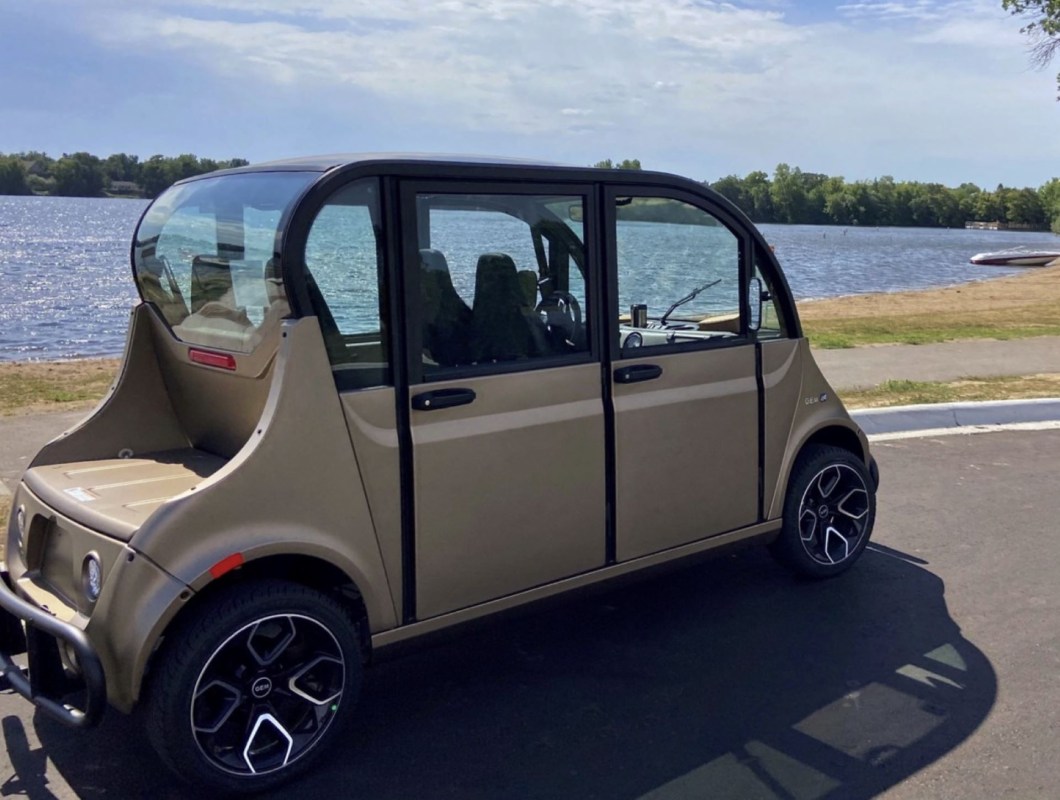In April, microcar manufacturer WAEV announced it would be adding rooftop solar panels as an option for its GEM electric vehicles (EVs), Electrek reports.
GEM microcars, also called low-speed vehicles or neighborhood EVs, are lightweight, efficient vehicles designed for use over short distances, Electrek explains.
Because microcars are smaller than standard cars and max out at 25 mph, they're very energy-efficient, according to Electrek. This makes them cheap to drive and also good for the environment since they produce the minimum amount of air pollution. Electric microcars like GEM models are the least polluting of all since they produce no tailpipe exhaust.
Now, GEM vehicles will be even cheaper to run. A rooftop solar panel captures free energy from sunlight to charge the car's internal battery, Electrek reports. WAEV expects this feature to produce enough energy for 4.3 to 12.4 extra miles of range each day, depending on the model.
Standard electric cars with solar panels are also starting to hit the market in the U.S. However, most don't gain as much range as GEM vehicles from using solar power, Electrek explains. This is because lighter microcars with lower-power engines can travel farther using the same amount of energy as heavier vehicles with high-power engines.
Microcars are designed for urban settings and small neighborhoods, where drivers are traveling only a short distance at a time, and the speed limit is low, according to Electrek. In these environments, a small, light vehicle is just as capable and convenient as a large, heavy one — and it even offers unique advantages like being able to park in tighter spaces.
WAEV's announcement included a statement from engineering director Joe Kenney, Electrek reports. "Sustainability has been at the core of GEM for more than 20 years and we're dedicated to providing our customers — both individuals and businesses — with more sustainable ways to move," he said.
Join our free newsletter for weekly updates on the coolest innovations improving our lives and saving our planet.









